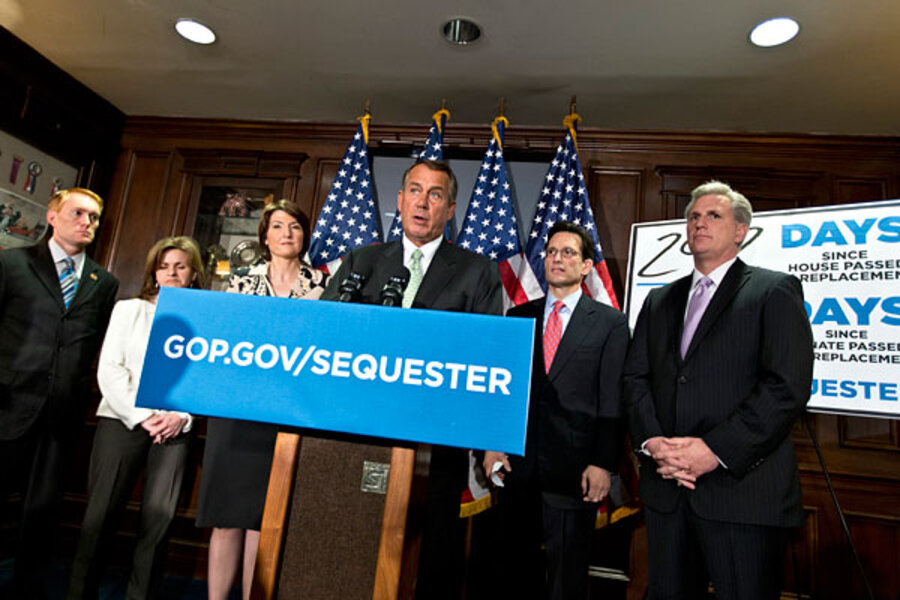Republicans' No. 2 complaint about grand deals that purport to reshape government spending is that the tax hikes always occur but spending reductions never happen to materialize. (No. 1 is the fervent belief that tax hikes destroy jobs.)
With $85 billion in cuts in hand this year, under their control, Republicans have real, actual, in-the-law reductions to federal spending. And they aren’t about to let those go – even if they’d prefer the reductions be prioritized (and mostly hit Democratic priorities) instead of the across-the-board version currently in the law.
“We've all said the across-the-board spending reduction is the wrong way to do spending reduction, that it needs to be more targeted,” said Rep. James Lankford (R) of Oklahoma. “We have overspent the federal budget by a trillion dollars now five years in a row. We cannot continue to do that. And so this perpetual statement of let's just postpone it, let's do it another time, let's delay it another month, is the wrong way to do it.”
The 2010 tea party wave that gave House Republicans their majority tried to slash $39 billion in funding right off the bat. They got less than 10 percent of that in their first few months in office, an experience that was a frustrating introduction to Washington politics.
Now, they’ve got a fat round of spending reductions in their sights – and they aren’t about to back down.





